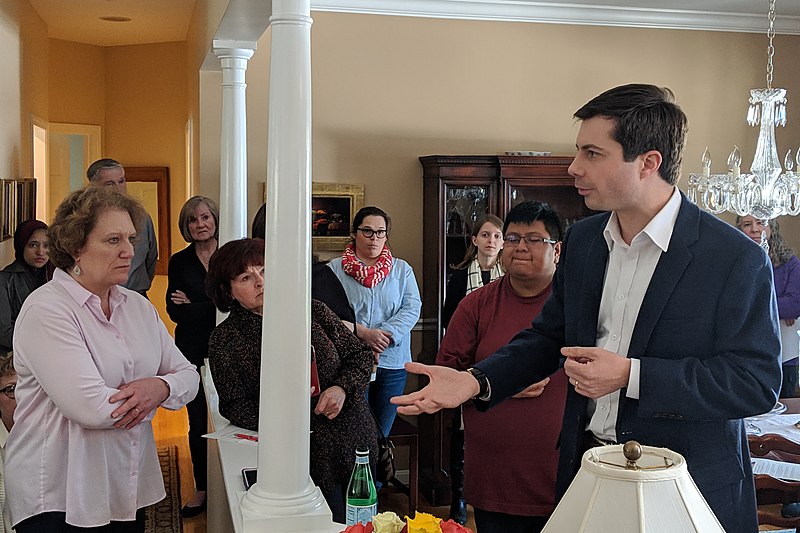
Mar 10 2019
It’s been another wild week in politics and pop culture. And for me, this week’s most satisfying stories, and pitches from presidential candidates, have been supported by clear evidence – or the desire to find that evidence.
(Too busy to read and click through all the article links? Listen to this podcast episode, for highlights on the go.)
As The World Turns
Navigating public opinion bandwagons, and deepfake technology
A powerful tweet goes viral, a cellphone video presents undeniable evidence of injustice, and a documentary incriminates a pop icon.
The court of public opinion is powerful, and it can often bring an important issue to light (like the #MeToo movement) or reveal the injustice black Americans face at the hands of police (in the case of Eric Garner’s death).
But as with any other aspect of the human condition, there is a dark side – one that can erode public trust, invade our privacy or destroy our reputation.
We’re growing more aware of how Russia used social media properties to spread disinformation in the 2016 US presidential elections. We’re also beginning to learn about deepfake technology, which can map faces onto a different body and have that face speaking words they didn’t actually utter. So what we see and watch with our own eyes may not even be real.
That said, some muddy-the-water methods don’t even need high-tech tools. The response to this week’s broadcast of Leaving Neverland, a documentary that alleges Michael Jackson molested and/or sexually abused two (at the time) young boys, included questions about the (financial) motives of the filmmakers and alleged victims. And when the alleged perpetrator is no longer alive to defend themselves, I’m wary of siding with the alleged victims.
This is an age that calls on us to think before we dive into an issue, to discern (as best we can) who to believe, and to gather as much evidence as possible before passing judgement.
Om Is Where The Heart Is
Single issue, or singular vision?
I’m still processing the three consecutive town hall meetings that cable news station CNN hosted tonight, to showcase 2020 Democratic candidates who are relatively new to the public spotlight.
It got me thinking of how some Americans I’ve spoken to, since 2015 when the last presidential election kicked into high gear, decide who to vote for. For them, they take pride in being single-issue voters, so if a candidate doesn’t align with them on that one issue, they tend to discount him/her and consider someone else.
It’s one thing if that one issue is as consequential as climate change, which is the core priority of Governor Jay Inslee’s campaign and seen as the top global threat by multiple countries. Combined with his experience and track record as governor, that might be enough to win the votes he needs.
But what are we to do if the single issue isn’t as consequential, but still personally important to us? How do we evaluate a candidate’s ability to be a good president?
That’s not always an easy question to answer and, in this ever-changing world, the qualities and decisions that may have been sound 20 years ago may seem indefensible now e.g. Joe Biden’s support for a 1994 crime bill won’t have aged well in our time of #BlackLivesMatter.
So, when I watched tonight’s televised town hall meetings, I listened and energetically tuned in to what lay beneath the surface of their well-rehearsed stories and positions:
- how well they heard and responded to the audience member’s questions
- what they were willing to own, and how open they were to new information and evidence
- how they processed the problems of our time, how much thought they’d invested in designing potential solutions, and how innovative those solutions are
- how they would show up as president, beyond the superficial “likeability” factor, to be a confident and compassionate commander-in-chief, economist-in-chief, consoler-in-chief, and all the other “XYZ-in-chief” hats they’d need to wear as president
Most of all, I wanted and needed to feel their heart and soul for the work of being president. Public service, in its highest expression, is noble work. Money and questionable loyalties have sullied many positions of elected office, and the system may feel too broken for any one president to fix. But I believe it’s an office that now, more than ever, requires a (wo)man who feels deeply called to do the work. A person with a singular vision that becomes a True North the majority of Americans can feel lifted into, a vision that can echo far beyond the 4 or 8 years of the presidency.
News and Views
How to search for evidence, for a more meaningful life
To round up this discussion and reflection on searching for clear evidence, I want to tell you about my Create a Meaningful Life in an Uncertain World workshop that I conduct fairly regularly.I’ve designed the workshop to help you uncover the clear evidence from your life and career choices so far. Sometimes, we look back on our life and career and we think it’s just been a series of coincidences, accidents and not very well thought out decisions. And that’s true some of the time. But if you are willing to look more closely at how those choices connect and relate to each other, you will find that there are threads that run through them.
There are also other threads in your life that you may not even have thought of before, that can give you some of that clear evidence in how you can continue to move forward in your life, and do the next right thing for yourself, from a place that has more meaning and soulful purpose. I love conducting this workshop because it brings a lot of comfort and clarity to those who attend it.Check out my event page for upcoming workshop dates and more details on how to register.
In the next issue:
I’m launching a new campaign next week, to share my work in more places and with more people. It’s part experiment, part conversation, and all heart.
I’m excited to share more about it soon.
Till then…
Live well and lead large – Maya
(featured image, of 2020 presidential hopeful Pete Buttigieg on the campaign trail, by marcn) [CC BY 2.0], via Wikimedia Commons

